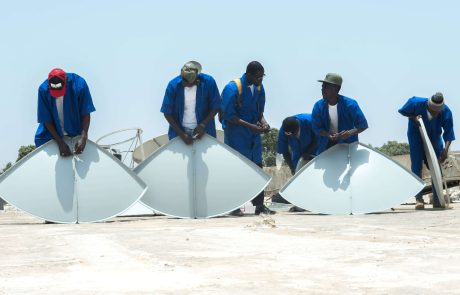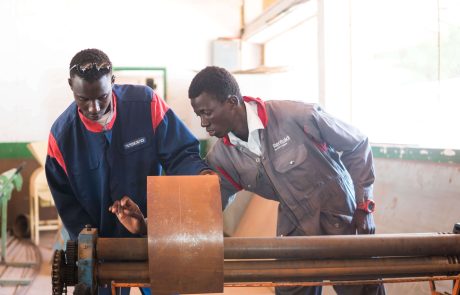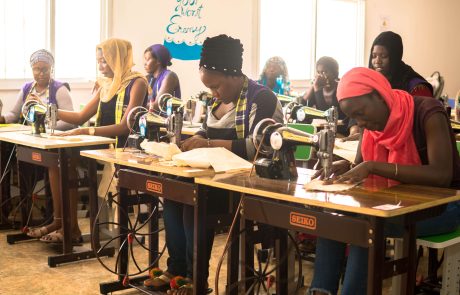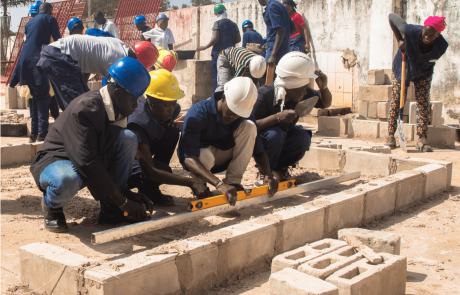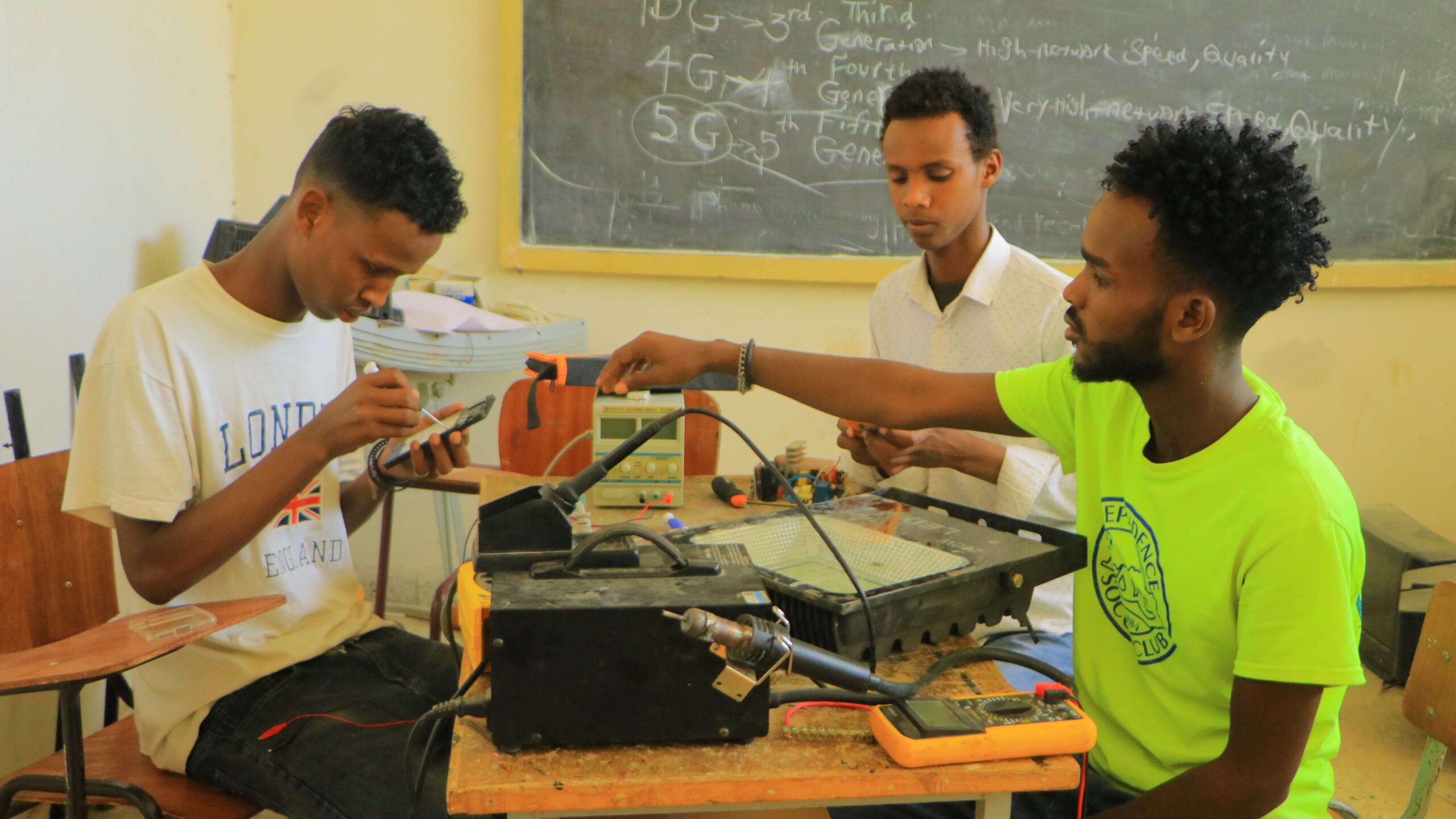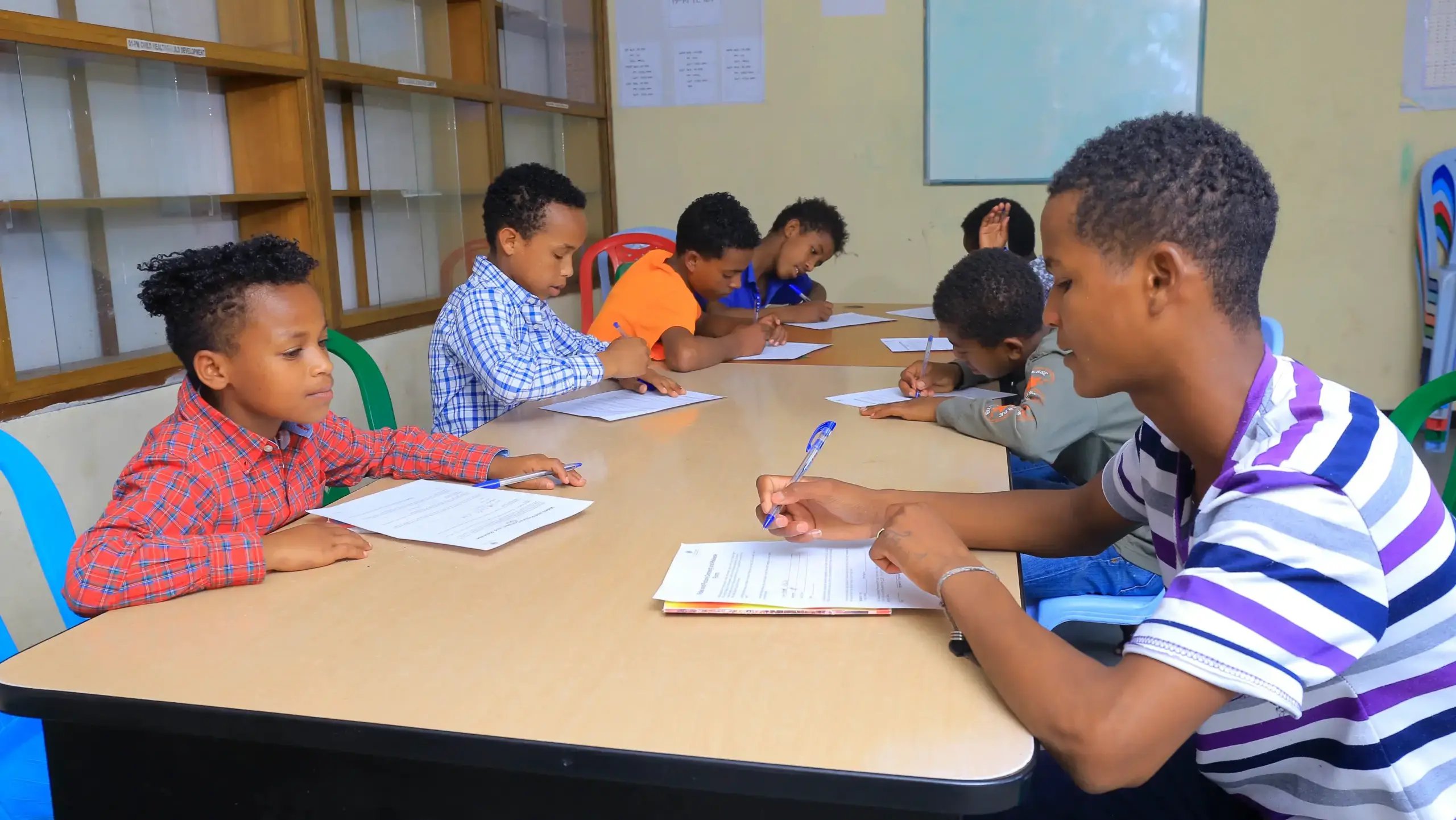The Tekki Fii programme provides Technical and Vocational Education and Trainings (TVET) lasting between six to nine months in three different cohorts.
The Gambia presents high levels of underemployment, precarious working conditions, and low levels of productivity. A significant share of youth either do not have a job or work in the informal sector with low and volatile incomes. The lack of economic opportunities and the incapacity to meet basic needs often leads youth to migrate in search of a better future. Action is therefore needed to develop human capital and to modernize key economic sectors. To do so, it is necessary to facilitate access to trainings designed to develop soft skills, technical skills and management skills that match both the needs of the labor market as well as the aspirations of each individual.
In response, the Tekki Fii programme provides trainings lasting between six to nine months in three different cohorts. Technical and Vocational Education and Training (TVET) is delivered to youth aged 18-35 years old with minimal mathematics and English skills. An additional Business Development (BD) training is provided to 30% of these trainees.
Throughout this programme, GIZ aims to develop youths’ technical and management skills in different sectors to increase their employability, access to decent employment, income, resilience and ultimately, improve their livelihoods.
What methods will be employed?
The evaluation will make use of a quasi-experimental design using propensity score matching. In this design, two treatment groups will be included: participants in TVET and participants in both TVET and BD.
The CIE focuses on shortlisted applicants who have been selected based on a pre-defined scoring system. We will identify the most comparable individuals before the intervention among the selected and non-selected candidates, respectively. This will enable us to construct a comparison group, where for every trainee, one or more unsuccessful applicants will be selected who have the most similar observable characteristics before the intervention.
The sample is composed of 1814 individuals of which 1095 are in the treatment groups and 719 are in the comparison group. Three data collection rounds are planned to conduct the evaluation: a baseline before the training, a midline six months after the training and an endline 18 months after the training in order to capture impacts at different points in time. Baseline data has been collected for all cohorts and midline data has been collected for cohort 1 and 2.

